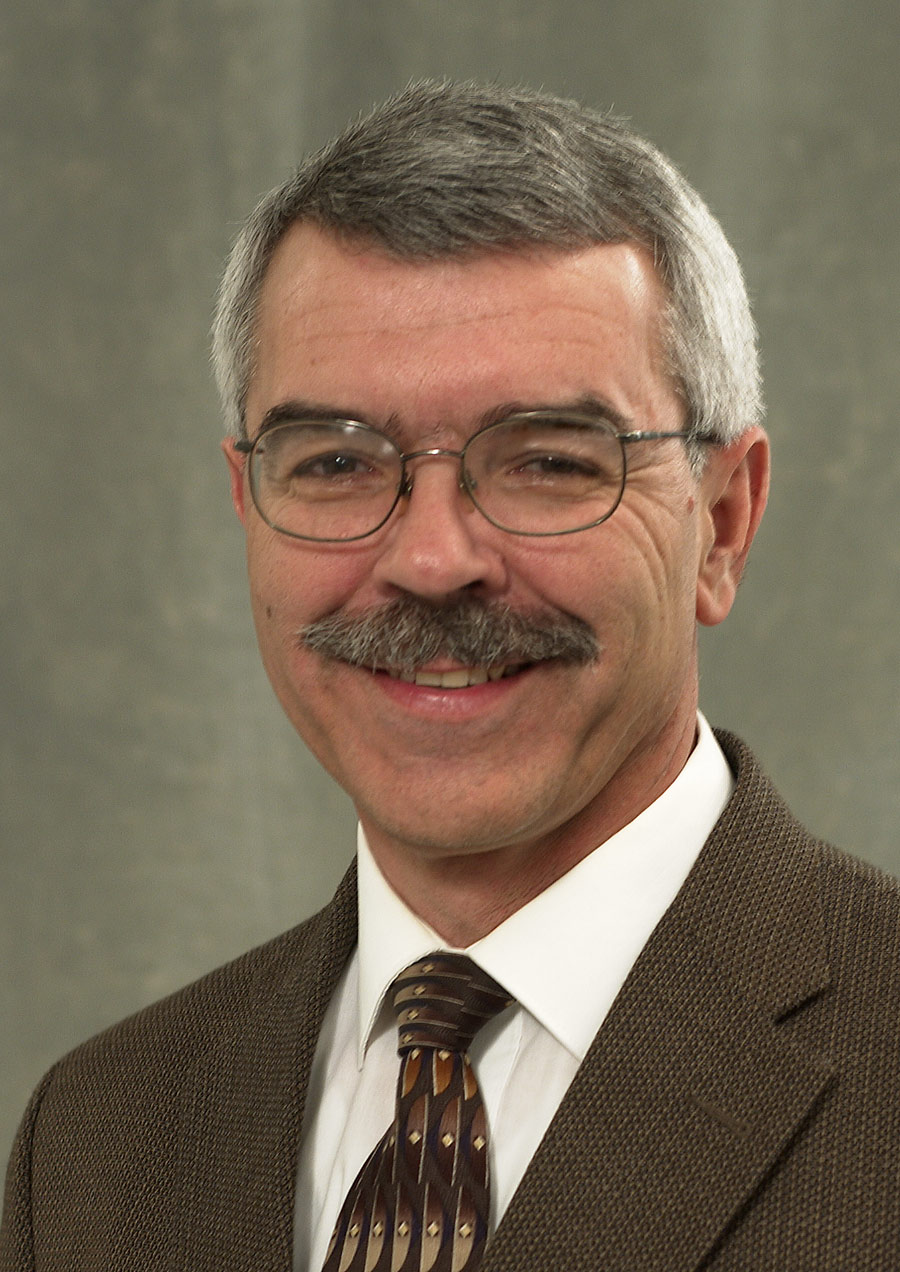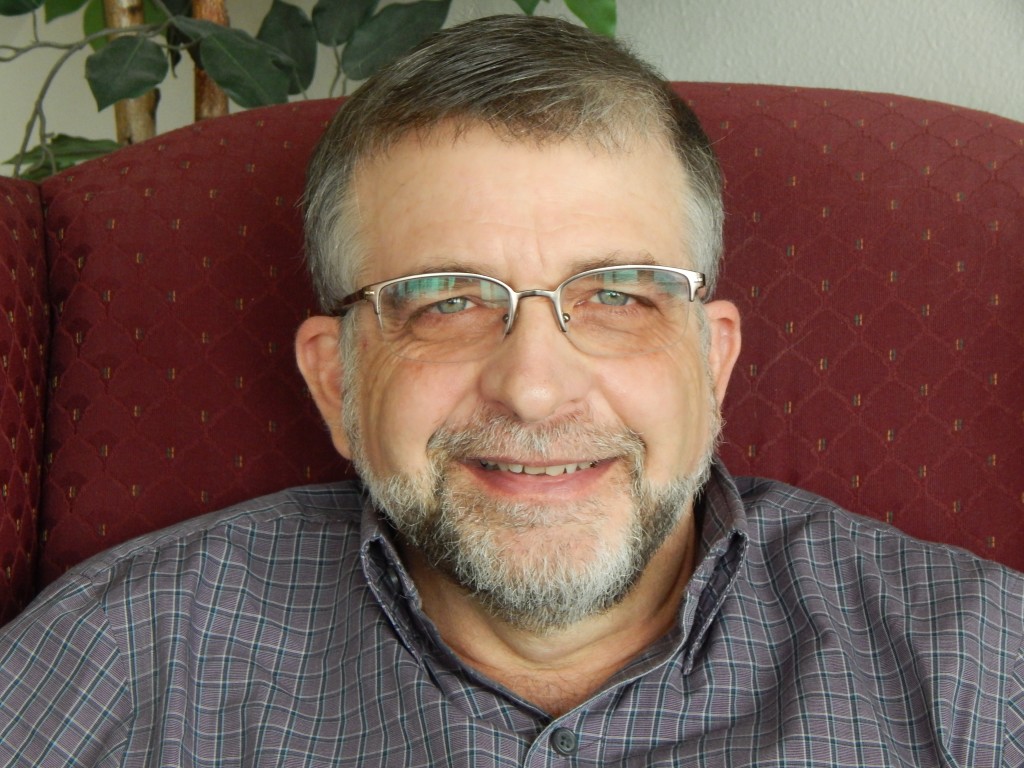Church benefits plan continues to be stable in its fourth year
By Annette Brill Bergstresser
ELKHART, Ind. (Mennonite Church USA/Everence)—Keith Harder of Hillsboro, Kan., retired March 31 from his position as director of The Corinthian Plan (TCP), a Mennonite Church USA-sponsored health coverage and benefits program based on mutual care practices.
Duncan Smith of Beaverton, Ore., who has been an area representative for the plan for the West Coast since 2010, began March 15 as interim director for a one-year term.
Harder led a project team in developing The Corinthian Plan in response to a resolution passed by the denomination’s Delegate Assembly in 2007 that called for the Executive Board to develop a plan that would provide all pastors with basic health coverage. Inspired by 2 Corinthians 8:14, in which Paul urges the church to share its resources, it was launched in January 2010.
The self-funded plan provides benefits for pastors and staff members in 401 congregations within Mennonite Church USA and for employees of some area conferences and church agencies. It represents about 70 percent of Mennonite Church USA congregations with eligible employees.
Since the plan’s inception, participating congregations have contributed more than $2 million to the plan’s mutual care component—the Fair Balance Fund—which helps smaller congregations to be able to participate in the plan. Currently 51 congregations are receiving subsides totaling just under $450,000 per year.
“Keith has devoted countless hours to this project, helping the denomination see the need for health care coverage for congregational staff and then leading the charge to envision how it would be implemented,” said Hal Loewen of Trinity Mennonite Church in Glendale, Ariz., chair of the Church Benefits Board that oversees the plan. “It has been accomplished largely due to his passion and commitment.”
Harder’s background as a pastor and denominational minister helped equip him for the unique task he faced in 2007. He began working with the General Conference (GC) Mennonite Church in the Office of Ministerial Leadership in 1999. When the GC merged with the Mennonite Church (MC) to form Mennonite Church USA in 2002, he became co-director of the new ministerial leadership team. One of his responsibilities was overseeing the Covenant Mutual Benefits (COMB) Plan—the health coverage plan offered to congregations and area conference staff at the time.
According to Harder, participation in the COMB plan was limited, partly because area conferences needed to have a specific percentage of congregations participating to qualify for the plan. This meant that some pastors were not able to participate and were uninsured. The mutual aid component of the redesigned plan helped address this issue, he said, adding, “We also made other changes to make it a better product than what we were able to offer before.”
“Working with the plan has been gratifying, especially in knowing that we’re providing coverage for people who might not otherwise have any,” Harder reflected. “I describe that as a small step toward being a more just church.”
“Keith demonstrated imagination and creativity in developing a plan that had financial integrity and met the goals set forth by the Delegate Assembly,” said Marlin Groff of East Chestnut Street Mennonite Church in Lancaster, Pa., a board member who also served on the project team with Harder. “He shouldered a difficult assignment. His thorough understanding of the dynamics and intricacies of a health plan and his understanding of how different churches think and operate made him well suited for developing The Corinthian Plan to be the strong and well received plan that it is today.”
Everence—the denomination’s stewardship agency—administers The Corinthian Plan, and claims are paid by Blue Cross Blue Shield. The plan also provides benefits to staff of the Executive Board, Mennonite Mission Network, Everence, and Associated Schools and Camps.
“Working with the Everence staff has been very rewarding for all of us,” said Harder. “In the planning stages, they certainly provided services that went way beyond what we were contracting for, and I am very grateful for all that they gave.”
Though he is retiring, Harder will continue to serve TCP as an area representative for Western District, South Central and Central Plains Mennonite conferences. Smith will continue in his area representative role—serving Pacific Northwest, Pacific Southwest and Mountain States Mennonite conferences—in addition to the role of director.
“One of the reasons I wanted to serve as an area representative was to work with congregations on the margins—immigrant and lower-income congregations—especially in gaining access to health care,” Smith said. “Over the years, I have also been impressed with how the wellness incentives and coaching options have grown and are beginning to meet more of the needs of those participating in the plan.”
Smith has served as a pastor, conference minister and interim pastor, working in both rural and urban settings. He also works in church consulting and mediation and has chaired the Leadership Discernment Committee for Mennonite Church USA.
“The Corinthian Plan has been an important service for many Mennonite pastors and church workers,” he said. “My goal is to continue the work of keeping TCP as a program that meets the needs of those it serves.”
“We’re fortunate to have Duncan serve as a successor to Keith because of his familiarity with the plan and his strong desire to continue the plan’s success,” Loewen said.
More information about The Corinthian Plan is available at www.mennoniteusa.org/corinthianplan
###
Sidebar:
Corinthian Plan renewals strong for 2014
The Church Benefits Board that oversees The Corinthian Plan met at the end of March. According to Keith Harder, outgoing director, and Duncan Smith, incoming director, the plan continues to be in a stable, financially strong position.
Twenty congregations did not renew their coverage for 2014, and of those, about half a dozen opted to purchase coverage through an Affordable Care Act (ACA) exchange plan. That amount was not enough to cause concern, Harder said.
“There’s every intention of continuing this plan in 2015,” he noted, “but the board will continue to review the impact of the ACA and monitor denominational participation in general.”
He said that while the number of 400 participating congregations has proven to be a sustainable level, the number of congregations is not as important as the risk profiles of the members.
“Our numbers indicate that the risk we have right now is manageable and sustainable, and the board is watching that carefully,” he said. He added that participation in the plan’s wellness program is growing.
While some congregations are exploring the ACA exchanges, Harder noted that there will still be people without access to coverage due to their income level and because some states are choosing not to expand Medicaid coverage. In The Corinthian Plan, eligibility is based on hours of paid work/ministry, not on income. For example, TCP provides coverage for bivocational pastors who might not be eligible for other plans.
“We think there will continue to be a niche for TCP until some of those things get worked out,” he said. “Obviously we need to have enough congregations participating to make it viable.”
###
Images available:
ftp://ftp.e.mennonites.org/public/NewsPhotos/KeithHarder2002.jpg
Keith Harder (Mennonite Church USA photo)
ftp://ftp.e.mennonites.org/public/NewsPhotos/DuncanSmith.JPG
Duncan Smith (Photo provided)



